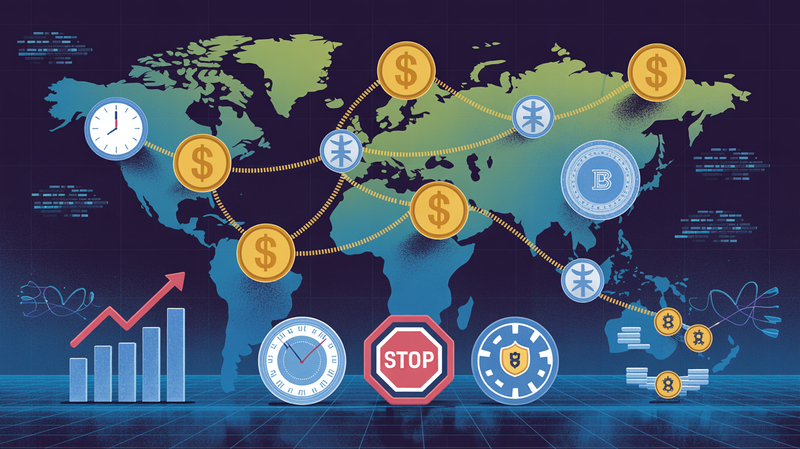BRICS Nations Embrace Digital Revolution with Blockchain-Based Payment System
In a significant development that underscores the ongoing shift towards decentralization in the global financial system, the BRICS nations, which include Brazil, Russia, India, China, and South Africa, have announced their intention to establish a new payment system. This innovative system will leverage blockchain technology and digital currencies, aiming to
In a significant development that underscores the ongoing shift towards decentralization in the global financial system, the BRICS nations, which include Brazil, Russia, India, China, and South Africa, have announced their intention to establish a new payment system. This innovative system will leverage blockchain technology and digital currencies, aiming to enhance the bloc's autonomy within the international monetary framework.
The initiative, as reported by the Russian news agency TASS, represents a concerted effort by the BRICS countries to minimize their dependence on the U.S. dollar for transactions—a process commonly referred to as de-dollarization. This move is part of a broader strategy to diversify and stabilize their economies by adopting alternative methods of settlement that are not tied to the economic policies and fluctuations of any single country, particularly the United States.
Yury Ushakov, a Kremlin aide, emphasized the strategic importance of this initiative in an interview with TASS. He highlighted that the creation of an independent BRICS payment system is a pivotal goal. The envisioned system aims to leverage cutting-edge digital technologies, including blockchain, to ensure a platform that is not only efficient and cost-effective but also accessible and beneficial for governments, businesses, and individuals across the BRICS nations. Ushakov stressed the importance of developing a system that is devoid of political influence, focusing instead on practical utility and inclusivity.
Further elaborating on the initiative, Ushakov mentioned the ongoing work to develop the Contingent Reserve Arrangement (CRA). This effort focuses on the use of currencies other than the U.S. dollar, indicating a clear move towards diversifying the economic dependencies of the BRICS nations.
This announcement comes on the heels of another report indicating the collaborative efforts of Russia’s Finance Ministry, the Bank of Russia, and their BRICS counterparts to establish the BRICS Bridge multisided payment platform. This platform is envisioned as a step forward in enhancing the efficiency and reliability of the global monetary system.
The focus on blockchain, digital currencies, and related technologies such as artificial intelligence (AI) and tokenization reflects a broader trend in the global financial landscape. Klaas Knot, Chair of the Financial Stability Board, has identified these areas as ongoing priorities in communications to finance ministers from the Group of 20 (G20) countries. This underscores the growing recognition of the potential of these technologies to revolutionize the way financial transactions are conducted worldwide, making them more secure, transparent, and less reliant on traditional banking infrastructures.
In summary, the BRICS nations' move to establish a blockchain-based payment system is a clear indicator of the shifting dynamics in global finance. It represents a significant step towards reducing dependency on dominant currencies like the U.S. dollar and embracing the future of financial transactions powered by digital innovation.





